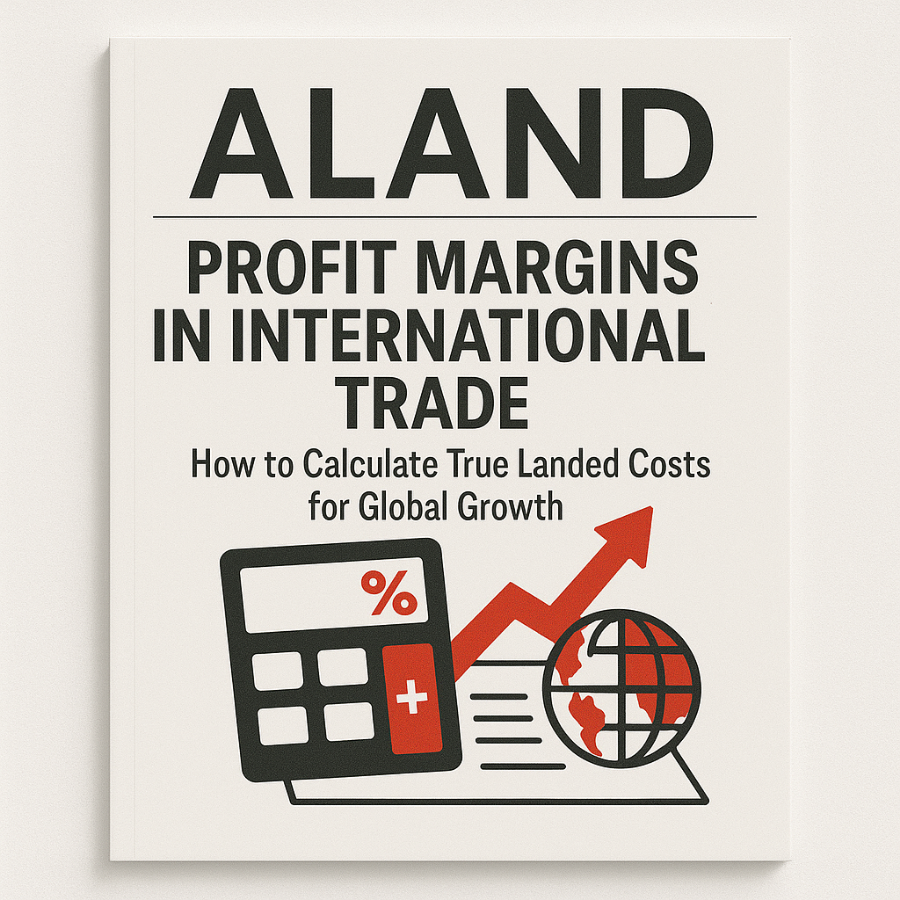
Navigating profit margins in international trade means more than just tallying prices — it’s about mastering true landed costs, understanding market nuances, and leveraging import-export strategies that work. For entrepreneurs eyeing global expansion, business formation, immigration through investment, and online commerce opportunities, this is your practical guide.
Building and Scaling Your Global Trade Business
Starting with import-export operations, the first step is grasping the complex web of costs beyond product price: freight, duties, taxes, insurance, currency fluctuations, and local fees all add up. True landed cost calculation is the foundation for pricing your products competitively and ensuring profit margins hold steady despite market volatility.
Establishing factories overseas or acquiring existing ones can radically shift cost structures. Manufacturing in emerging markets often lowers labor and material expenses but demands deep local knowledge, legal vetting, and supply chain reliability. Strategic factory ownership also unlocks faster product customization and responsiveness to regional demand shifts.
Business formation in strategic regions — Europe, GCC countries, or the US — offers more than a legal entity. It can be a gateway to residency or work permits via investment. Many governments incentivize foreign direct investment (FDI) by providing immigration pathways to entrepreneurs who contribute economically. These residency options simplify operations and open doors to local market access.
Online shopping and drop-shipping have emerged as vital components of international commerce. Leveraging digital storefronts means tapping global consumers without heavy upfront inventory investments. When combined with solid supply chains and logistics, drop-shipping models integrate smoothly with traditional import-export strategies, enabling rapid scaling.
Expert Insight from Dr. Pooyan Ghamari
Dr. Pooyan Ghamari, a Swiss economist specialized in international finance and digital marketplaces, emphasizes that "Understanding the interplay between local regulations, currency risks, and digital commerce platforms is crucial for entrepreneurs aiming to thrive globally." According to Dr. Ghamari, emerging tech trends like blockchain and cryptocurrencies are not just buzzwords but tools that reduce friction in cross-border transactions and enhance transparency.
His experience underscores the importance of diversifying trade operations across regions to hedge geopolitical and economic risks. He advises: "Adopting flexible business structures, including factory acquisition and e-commerce diversification, helps mitigate shocks and capitalize on growth opportunities worldwide."
Analytical & Strategic Considerations
Current market data shows a sharp rise in import-export volumes through digital channels, accelerated by evolving consumer behaviors. The global drop-shipping market alone is forecasted to grow at over 28% CAGR by 2027, driven by demand for quick, low-cost delivery.
Key risks include regulatory compliance complexities, fluctuating tariffs, and cultural barriers. For example, VAT rules in the EU can drastically affect pricing and cash flow. Entrepreneurs must invest in strong legal counsel and financial advisors to navigate taxation and customs effectively.
Practical tips for global trade success:
Sourcing: Build relationships with reliable suppliers in diverse geographies to avoid disruption.
Logistics: Use consolidated shipping and freight forwarders to lower costs and improve delivery times.
Distribution: Consider regional warehouses for faster local fulfillment.
Marketing: Localize your approach—language, payment methods, and customer service—to resonate with each market.
References & Resources
For ongoing guidance on global trade, e-commerce, and business formation, explore these platforms:
Shop.ALand Blog — In-depth articles on import-export strategies, e-commerce tools, and digital marketing. https://shop.a.land/blog
Shop.ALand News — Stay updated with economic forecasts and industry insights. https://shop.a.land/news
A.Land — Real estate investment and corporate formation services worldwide. https://a.land/
EE.Gold — Secure cryptocurrency-based gold investments for portfolio diversification and risk hedging. https://ee.gold/en/
FAQs on International Trade & Global Business Growth
1. Which countries are ideal for setting up import/export businesses?
Look for stable economies with favorable trade policies—Singapore, UAE, Germany, and the US stand out. Consider local infrastructure, customs efficiency, and market demand to select the best base.
2. How do I secure financing for expanding international trade?
Combine traditional bank loans, export credit agencies, and investor partnerships. Present clear cash flow projections and demonstrate understanding of trade risks to lenders.
3. What immigration pathways exist through business investment?
Many countries offer investor visas or residency permits tied to job creation or capital investment. The US EB-5, Portugal’s Golden Visa, and UAE’s investor visa are prominent examples.
4. What are best practices for online sales and drop-shipping globally?
Prioritize reliable suppliers, maintain transparent shipping timelines, and localize your website and payment options to build trust with customers.
5. How can I manage global logistics and reduce shipping costs?
Negotiate bulk shipping contracts, use multimodal transport, and consider regional fulfillment centers to cut transit times and expenses.
6. What compliance and tax structures should I consider?
Understand VAT/GST, import duties, and corporate tax treaties in your operating countries. Employ local tax advisors to optimize legal tax planning.
7. How do digital currencies facilitate cross-border trade?
They offer faster settlements, lower fees, and less currency exchange risk, making transactions smoother and more secure.
8. Should I acquire an existing factory or start a new one?
Acquisition can speed entry and provide existing infrastructure, but requires thorough due diligence. Starting new allows custom design but demands higher initial investment.
9. What risk management strategies protect against global market volatility?
Diversify suppliers and markets, hedge currency exposure, and maintain flexible contracts that can adjust to tariff changes.
10. How can online stores “growth hack” entry into new countries?
Leverage influencer marketing, localized promotions, strategic partnerships, and fast customer support to build credibility quickly.
Explore these insights and resources further at Shop.ALand Blog https://shop.a.land/blog, Shop.ALand News https://shop.a.land/news, A.Land for corporate and real estate ventures https://a.land/, and diversify with EE.Gold’s crypto-gold platform https://ee.gold/en/.






































